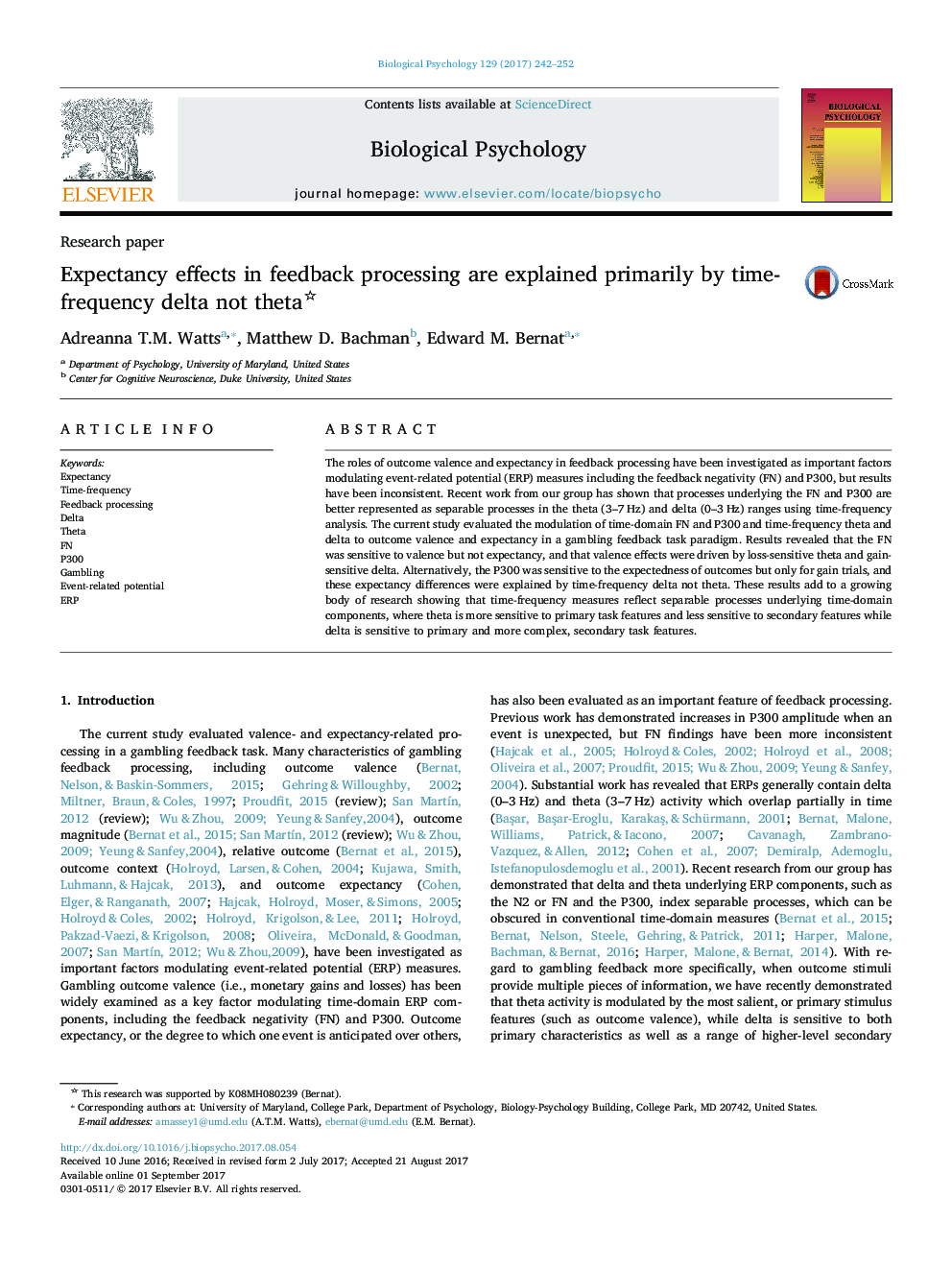| کد مقاله | کد نشریه | سال انتشار | مقاله انگلیسی | نسخه تمام متن |
|---|---|---|---|---|
| 5040357 | 1473845 | 2017 | 11 صفحه PDF | دانلود رایگان |
- FN is sensitive to outcome valence but not expectancy; valence effects are driven by loss-sensitive theta and gain-sensitive delta.
- P300 is sensitive to outcome expectancy for gain outcomes only; expectancy effects are driven by delta, not theta.
- Theta band activity is sensitive to the most salient stimulus feature: outcome valence.
- Delta band activity is modulated by valence as well as a more complex characteristic: outcome expectancy.
The roles of outcome valence and expectancy in feedback processing have been investigated as important factors modulating event-related potential (ERP) measures including the feedback negativity (FN) and P300, but results have been inconsistent. Recent work from our group has shown that processes underlying the FN and P300 are better represented as separable processes in the theta (3-7Â Hz) and delta (0-3Â Hz) ranges using time-frequency analysis. The current study evaluated the modulation of time-domain FN and P300 and time-frequency theta and delta to outcome valence and expectancy in a gambling feedback task paradigm. Results revealed that the FN was sensitive to valence but not expectancy, and that valence effects were driven by loss-sensitive theta and gain-sensitive delta. Alternatively, the P300 was sensitive to the expectedness of outcomes but only for gain trials, and these expectancy differences were explained by time-frequency delta not theta. These results add to a growing body of research showing that time-frequency measures reflect separable processes underlying time-domain components, where theta is more sensitive to primary task features and less sensitive to secondary features while delta is sensitive to primary and more complex, secondary task features.
Journal: Biological Psychology - Volume 129, October 2017, Pages 242-252
